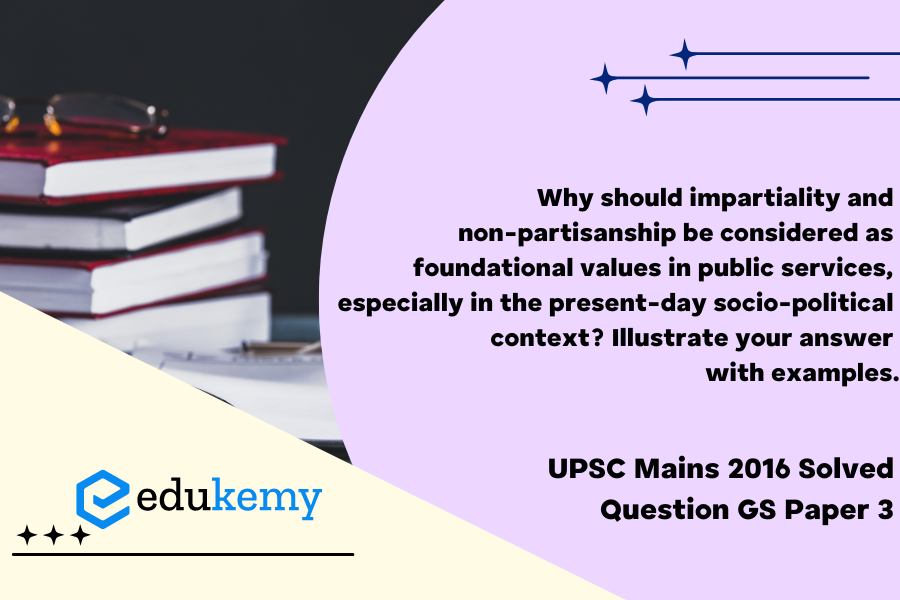In the contemporary socio-political landscape, the adherence to impartiality and non-partisanship stands as an imperative cornerstone for effective public services. These foundational values are essential for fostering trust, ensuring fairness, and upholding the principles of democracy. In an era marked by heightened polarization and diverse societal perspectives, public services must transcend political affiliations to cater to the needs of the entire citizenry. The commitment to impartiality safeguards against the undue influence of political biases, allowing public institutions to function with integrity and credibility. For instance, independent regulatory bodies that oversee critical sectors like finance or environmental protection exemplify the significance of impartiality. By staying neutral and unbiased, these entities can make decisions that prioritize the public interest over partisan agendas. Thus, in the present-day context, the embrace of impartiality and non-partisanship in public services is paramount for fostering a resilient and just society.
Tag: Aptitude and foundational values for Civil Service, integrity, impartiality and non-partisanship, objectivity, dedication to public service, empathy, tolerance and compassion towards the weaker-sections
Contents
Decoding the Question:
- In the Introduction, try to give a brief description about the importance of Impartiality and non-partisanship.
- In Body, elaborate need for Impartiality and Non-Partisanship in Public Services with examples.
- In Conclusion, try to conclude with the Shah Commission’s Report.
Answer:
Public servants are responsible for managing resources entrusted to them by the community because they provide and deliver services to the community and they make important decisions that affect all aspects of a community life. Impartiality and non-partisanship imply acting solely according to the merits of the case and serving equally well the governments of different political persuasions. An impartial and politically neutral civil service is a defense against the spoils system which has the propensity to degenerate into a system of patronage, nepotism, and corruption.

Need for Non-Partisanship in Public Services:
- It entails that the civil servant will serve the government of the day faithfully without political bias. For example, a resident commissioner may have to serve under governments of differing political ideologies in the center and the state.
- Will help a civil servant to take decisions without any fear/favor to any political party and based on constitutional principles. For example, during elections, non-partisanship will aid a DM/DC in discharging the duties of a RO effectively.
- It ensures an effective/professional relationship between the elected representative and the civil servants. For example, non-partisanship will enhance/maintain the credibility of a chief secretary, irrespective of the party in power.
Need for Impartiality in Public Services:
- Helps a civil servant to make decisions on objective criteria and not on biases and prejudices. For example, impartiality will help the Chairman of the Finance Commission, in recommending resources on objective criteria, without a bias to his/her own home state.
- It ensures an amicable and effective relationship between civil servant and the society/citizens. For example, an impartial SDM/DSP will command respect of the people, and thus will gain their cooperation in various conflict management situations.
- It helps build an equal attitude towards everything and everyone. For example, impartiality will aid a DM/DC in implementing benefits under PMKVY without a bias of caste or religion.
The Shah Commission which investigated the ‘excesses’ committed during the Emergency (1975-77), found that public servants committed irregular and illegal acts, which caused immense suffering to the masses out of fear of their political masters. During the Nuremberg trial the top German army commanders told the War Crime Tribunal that they committed atrocities against the Jews out of fear of Nazi top brass. It is often seen that many public servants, though honest themselves, succumb to the unjust demands of political masters or their official superiors. Therefore, in this situation, impartiality and non-partisanship are imperative in public services to make decisions that are free from any interference, especially from the political class.
In case you still have your doubts, contact us on 9811333901.
For UPSC Prelims Resources, Click here
For Daily Updates and Study Material:
Join our Telegram Channel – Edukemy for IAS
- 1. Learn through Videos – here
- 2. Be Exam Ready by Practicing Daily MCQs – here
- 3. Daily Newsletter – Get all your Current Affairs Covered – here
- 4. Mains Answer Writing Practice – here


